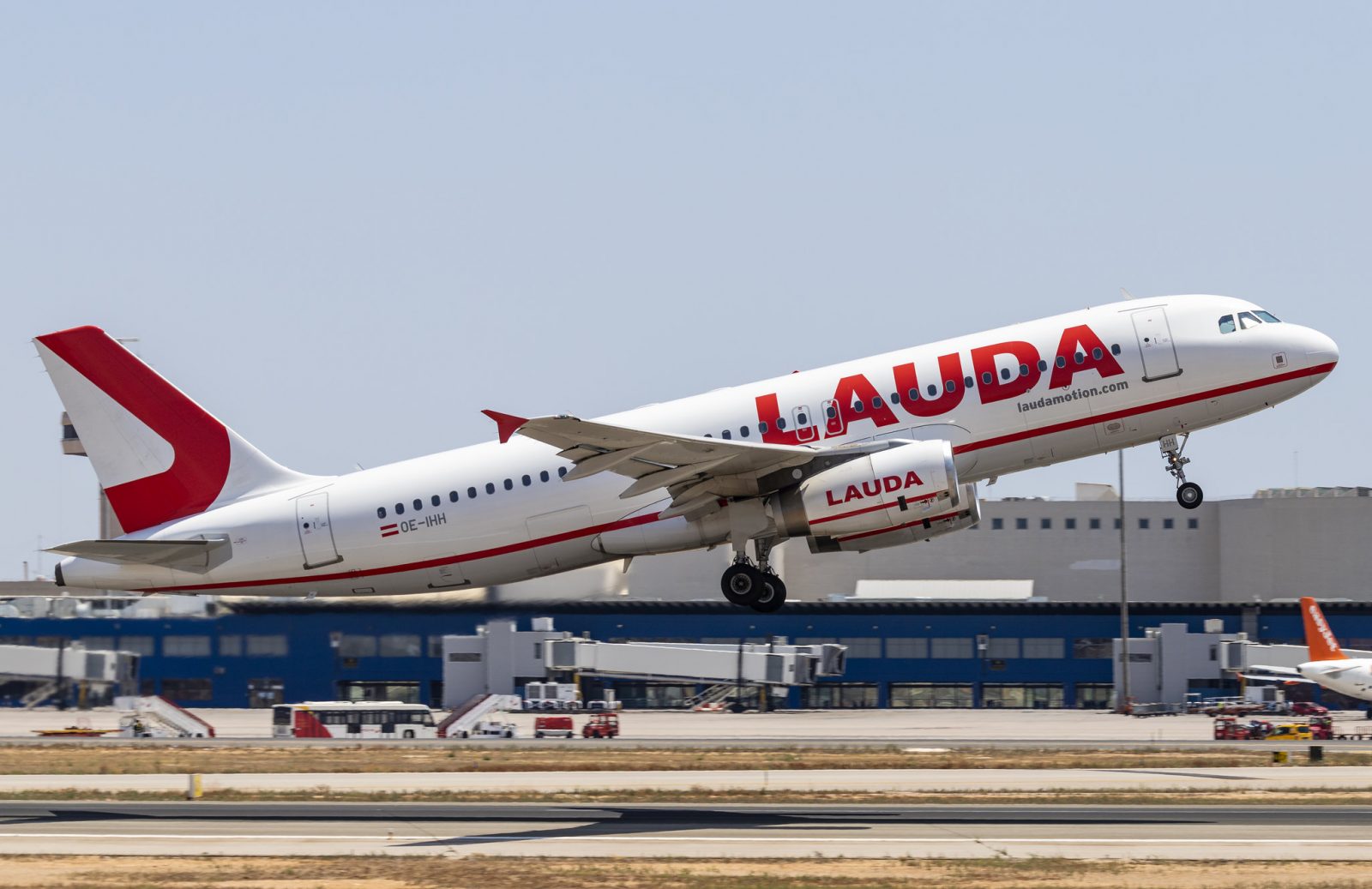
A flight attendant ordered the emergency evacuation of 169 passengers and 7 crew members of a Luadamotion Airbus A320 at London’s Stansted Airport because of an overwhelming ‘fight or flight’ response that made her want to escape as quickly as possible despite there being no need for evacuation concludes a new report by the Air Accident Investigation Branch (AAIB). In total, 10 passengers were injured during the evacuation in darkness onto the runway and two had to be taken to hospital.
The Laudamotion flight from London Stansted to Vienna suffered a contained engine failure as the aircraft was still on the runway for takeoff during last year’s March 1 incident. The engine failure prompted the Captain to ‘reject’ the takeoff and make an emergency stop on the runway before telling crew over the public address system to stay at their report stations (to indicate the flight crew were aware and dealing with an issue but that there was no active threat).
Around a minute and 20 seconds after making that announcement, the senior flight attendant at the front of the plane ordered an emergency evacuation via inflatable slides. Ten passengers sustained injuries during the chaotic and slow evacuation, and flight attendants were forced to pull hand luggage off passengers as they attempted to get out of the aircraft.
Meanwhile, the Captain who had had no intention of ordering an evacuation after deciding there was no threat to the plane or passengers, was about to taxi to a stand when he noticed a cabin door had been opened. There ensued a bizarre conversation between the Captain and senior flight attendant over who had exactly ordered the evacuation.
As it turns out, the senior flight attendant didn’t hear the “Attention crew: at station” message from the Captain after the initial stop and was left wondering what the loud noise was from the left engine. During a conversation with another flight attendant, she recalls suddenly saying “evacuate, evacuate, evacuate,” which of course, prompted the evacuation.
While flight attendants are empowered to order an evacuation they should only do so when there is an immediate danger like fire or smoke or if the pilots are incapacitated. In this case, the flight attendant didn’t even attempt to call the flight crew after landing and told investigators she never had much contact with pilots.
Investigators concluded that the loud noise from the engine failure startled the senior flight attendant and narrowed her attention so that she missed the crucial message from the Captain. She, it turns out, had only recently been promoted after just a couple of years working as a flight attendant – several months of which was spent grounded after a previous airline had gone bust.
And while she had completed all necessary training courses, the investigators also concluded there were issues with the training they had received. One aspect was that every training scenario of an emergency situation resulted in an evacuation – the flight attendants naturally thought every emergency resulted in an evacuation.
Of most concern to accident researchers, however, was evidence of passengers slowing down the evacuation by stopping to take hand luggage with them. The AAIB warned that current measures to prevent passengers taking luggage in an emergency was insufficient and has now formally asked European aviation regulators to commission a study into how to stop this in the future.
One idea that has been touted for several years is lockable overhead bins, while flight attendants in the U.S. would like to see passengers who take hand luggage in an emergency prosecuted.
Mateusz Maszczynski honed his skills as an international flight attendant at the most prominent airline in the Middle East and has been flying ever since... most recently for a well known European airline. Matt is passionate about the aviation industry and has become an expert in passenger experience and human-centric stories. Always keeping an ear close to the ground, Matt's industry insights, analysis and news coverage is frequently relied upon by some of the biggest names in journalism.







